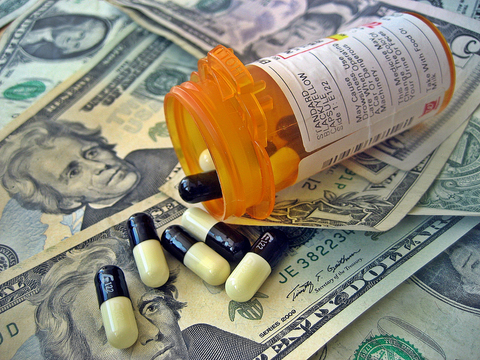Posted by Bill Sandweg on 28 November 2018.
There was a good story in the Washington Post earlier this week discussing some of the reasons for our high drug prices. So why are prices so high? Why doesn’t our vaunted free market system drive them lower through competition? While there are a number of explanations, they all revolve around the drug companies and the perverse incentives we have created for them to keep prices high.

In the early 2000’s, insurance plans and hospitals created Pharmacy Benefit Managers (PBM’s) to negotiate with the drug companies for lower prices. This would seem like a good thing. Enter the doctrine of unintended consequences. The drug companies immediately began gaming the system. The PBM’s were paid on the basis of the discounts they were able to negotiate from the drug companies. To deal with them, the drug companies raised their prices so they could give discounts without hurting their bottom lines. So even though the PBM’s were able to negotiate discounts, the health insurers and the hospitals were not realizing any savings because they were still paying about what they were before the PBM’s came on the scene.
On top of that, the “savings” being created by the “discounts” negotiated by the PBM’s were being shared among the PBM’s, the insurers and the hospitals. The public was not getting anything out of this shell game and was actually being hurt as some patients did not have drug coverage or, even if they did have drug coverage, were required to pay the inflated full list price until they met their deductible or had to make co-payments which were based on the full list price.
Other incentives for high prices are found in our patent system. The drug companies are gaming the system there as well. The patent system was designed to reward innovation by protecting it from competition for a short period of time. The drug companies game the system by making subtle changes to a patented medication and then applying for a new patent. They can keep repeating the process for many cycles. According to the Post article, very few new drug patents are for new medicines; they are mostly for existing medicines to which some small changes have been made.
Drug companies also buy up what are called “orphan” medications. These are medications for which there is no real competition because the condition they treat is uncommon. The drugs are off patent and not much money can be made from them. Enter the drug company which buys rights to an orphan drug and then jacks the price up. New companies are reluctant to compete because there isn’t room in the market for two manufacturers given the small number of customers who need the drug. Even if another company wants to come in and compete, it will take it at least a year or two to begin the manufacturing process and it has no guarantee that the company already selling the drug won’t drop the price and make it unprofitable for the new company. The end result is that no one comes to compete and the buyer of the orphan drug forces everyone who needs it to pay through the nose.
The Post article also discusses some of the other reasons that drug companies get away with charging such high prices. In the end, it all comes down to money and the lobbying power of the drug companies. Time for this to end.




